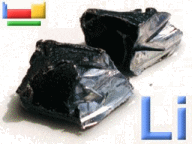 The laws were formulated between 1609 to 16l9, and are (as usually stated):
The laws were formulated between 1609 to 16l9, and are (as usually stated):
<ul> <li> Planets move around the Sun in <strong>ellipses</strong>, with the Sun at one focus </li> <li> The line connecting the Sun to a planet sweeps <strong>equal areas in equal times. </strong></li> <li> The<strong> square</strong> of the orbital period of a planet is proportional to the <strong> cube</strong> (3rd power) of the mean distance from the Sun in (or in other words--of the"semi-major axis" of the ellipse, half the sum of smallest and greatest distance from the Sun) </li> </ul> <ol> </ol> <!--more--> <a href="http://www-spof.gsfc.nasa.gov/stargaze/Kep3laws.htm" target="_blank" rel="noopener noreferrer">Read more . . .</a><br />
Like this:
Like Loading...

 “Here you will find a [browsable] collection of knots and links, viewed from a (mostly) mathematical perspective. Nearly all of the images here were created with KnotPlot, a fairly elaborate program to visualize and manipulate mathematical knots in three and four dimensions.” The diagrams are in color and are exceptionally clear.
“Here you will find a [browsable] collection of knots and links, viewed from a (mostly) mathematical perspective. Nearly all of the images here were created with KnotPlot, a fairly elaborate program to visualize and manipulate mathematical knots in three and four dimensions.” The diagrams are in color and are exceptionally clear.
 Lithium is a Group 1 (IA) element containing just a single valence electron (1s22s1). Group 1 elements are called "alkali metals". Lithium is a solid only about half as dense as water. A freshly cut chunk of lithium is silvery, but tarnishes in a minute or so in air to give a grey surface.
Lithium is a Group 1 (IA) element containing just a single valence electron (1s22s1). Group 1 elements are called "alkali metals". Lithium is a solid only about half as dense as water. A freshly cut chunk of lithium is silvery, but tarnishes in a minute or so in air to give a grey surface. The laws were formulated between 1609 to 16l9, and are (as usually stated):
The laws were formulated between 1609 to 16l9, and are (as usually stated): 




























